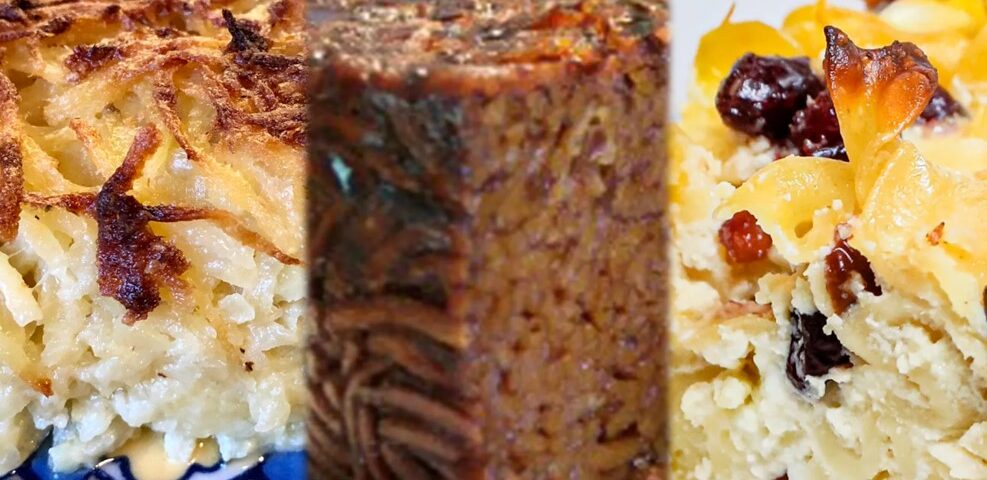Mrs. Cooperman’s Shabbat


The recipes for Mrs. Cooperman’s three kugels, customarily eaten on this Shabbat, can be found in the “Taste of TRADITION” cookbook (RCA, 1995).
Mrs. Cooperman, who would recite the entire liturgy beginning-to-end every Sabbath morning, wishes all readers of TRADITION a good Shabbos – Rosh Hodesh – Hannuka! Revisit her classic wisdom for this Shabbat in the timeless essay of our esteemed editor emeritus, Rabbi Emanuel Feldman, who taught us that old Mrs. C, unlearned as she may have been, “poured out before the Creator every Shabbat morning” a “torrent of words” which contained “a key ingredient of worship.”
She didn’t know the translation of those words, but in a much deeper sense she understood their meaning. She brought to her praying a total submission of the self before the Presence of God, a love for her Creator so consuming that she could not bear to pass over a single word of His holy siddur. She worshiped God not from knowledge or intellect, but from an inner spirit that transcends the mind. She did not know the proofs for the existence of God, but she needed none, for God was not an abstraction but a reality. She had no idea of the philosophical underpinnings of prayers, but when she said barukh ata, she knew she was talking to her personal Creator and that He was listening. She did not know the subtle differences between faith and trust and belief, and her prayer calendar was a seamless web which did not distinguish between one kind of holiness and the next, and she thanked God for the miracle of the Hanuka oil every Shabbat, and ushered in the new moon every week of the year, but she loved God, and her greatest joy was to engage in conversation with Him.
Read Rabbi Feldman’s “God and Mrs. Cooperman” (Winter 1995), and read Dr. Erica Brown‘s response to in light of “Rupture and Reconstruction,” where she identifies a direct connection between Mrs. Cooperman’s unsophisticated piety and observations made by Prof. Haym Soloveitchik:
If there is a deficiency in the religious life of the sophisticated thinker, then let it be set straight, but can that be corrected only by reverting to ignorance? Both Feldman and Soloveitchik set a dialectic tension in which sophisticated Jewish thinking (and commitment) and genuine belief somehow cannot co-exist. This is not a new supposition, but one would hope that in the shadow of Rabbi Kook, Rabbi Joseph B. Soloveitchik, and scores of their students, that Jewish scholarship and sincerity would not be mutually exclusive (Communications, Winter 1996).
